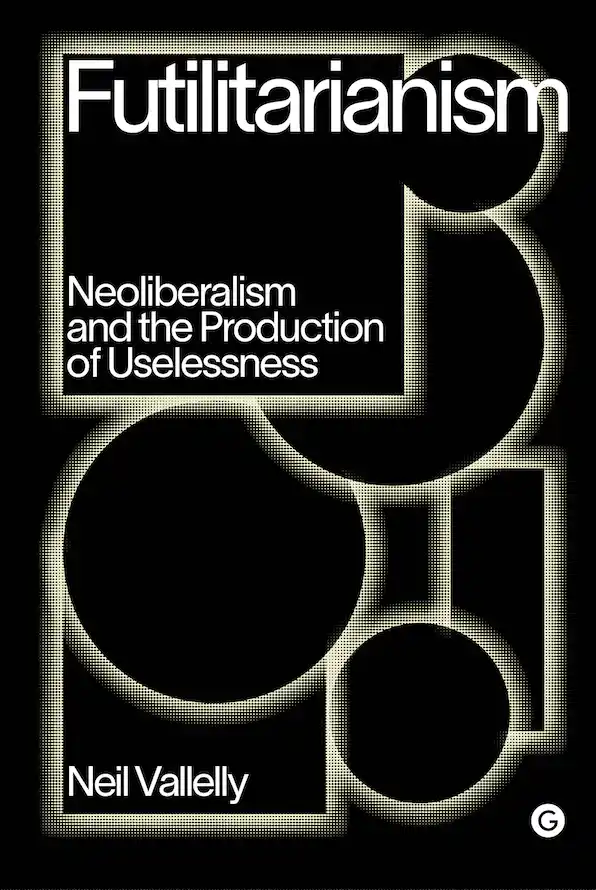Neoliberalism and the Production of Uselessness
If maximizing utility leads to the greatest happiness of the greatest number of people, as utilitarianism has always proposed, then why is it that as many of us currently maximize our utility—by working endlessly, undertaking further education and training, relentlessly marketing and selling ourselves—we are met with the steady worsening of collective social and economic conditions? In Futilitarianism, social and political theorist Neil Vallelly eloquently tells the story of how neoliberalism transformed the relationship between utility maximization and the common good.
Drawing on a vast array of contemporary examples, from self-help literature and marketing jargon to political speeches and governmental responses to the COVID-19 pandemic, Vallelly coins several terms—including “the futilitarian condition,” “homo futilitus,” and “semio-futility”—to demonstrate that in the neoliberal decades, the practice of utility maximization traps us in useless and repetitive behaviors that foreclose the possibility of collective happiness.
This urgent and provocative book chimes with the mood of the time by at once mapping the historical relationship between utilitarianism and capitalism, developing an original framework for understanding neoliberalism, and recounting the lived experience of uselessness in the early twenty-first century. At a time of epoch-defining disasters, from climate emergencies to deadly pandemics, countering the futility of neoliberal existence is essential to building an egalitarian, sustainable, and hopeful future.
Neil Vallelly is a Researcher at Economic and Social Research Aotearoa (ESRA) and a Research Associate at the Centre for Global Migrations, University of Otago, New Zealand. His writing has appeared in such journals as Rethinking Marxism, Angelaki, and Poetics Today, and magazines including New Internationalist and ROAR.
“An extremely lucid, smart analysis of our dilemma. That life in neoliberalism is often futile and nihilistic has been obvious for a long time. That neoliberal politics is covertly pessimistic as to human survival has also been clear. What Vallelly achieves here is a remarkable new theoretical insight into why that is, and why utilitarianism under neoliberal capitalism must mutate into futilitarianism. A thoroughly welcome, timely and profound intervention.”― RICHARD SEYMOUR, AUTHOR OF THE TWITTERING MACHINE





